Leon Xu: Empty Orchestra
The Brooklyn Rail June 2023
by Hindley Wang
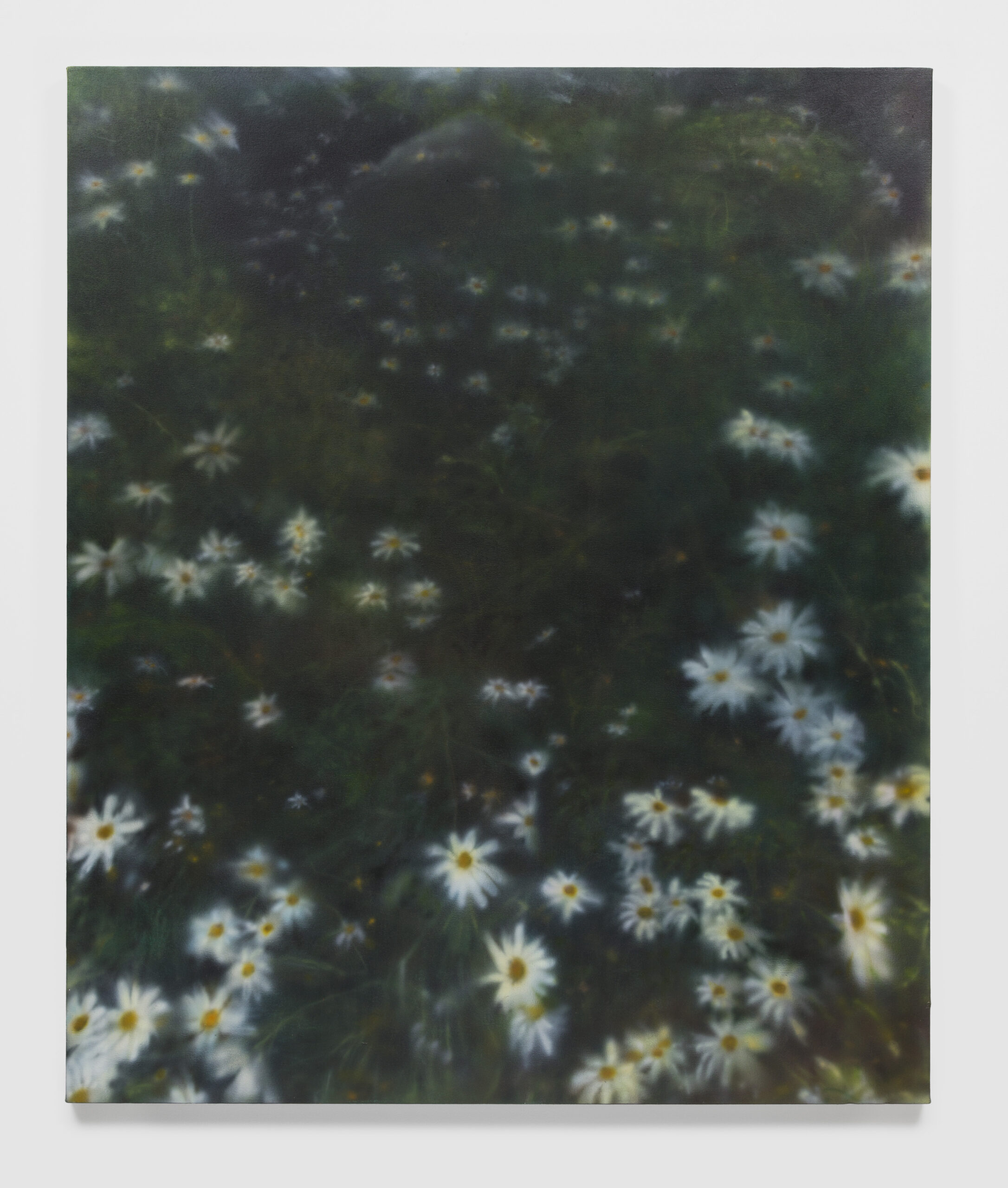
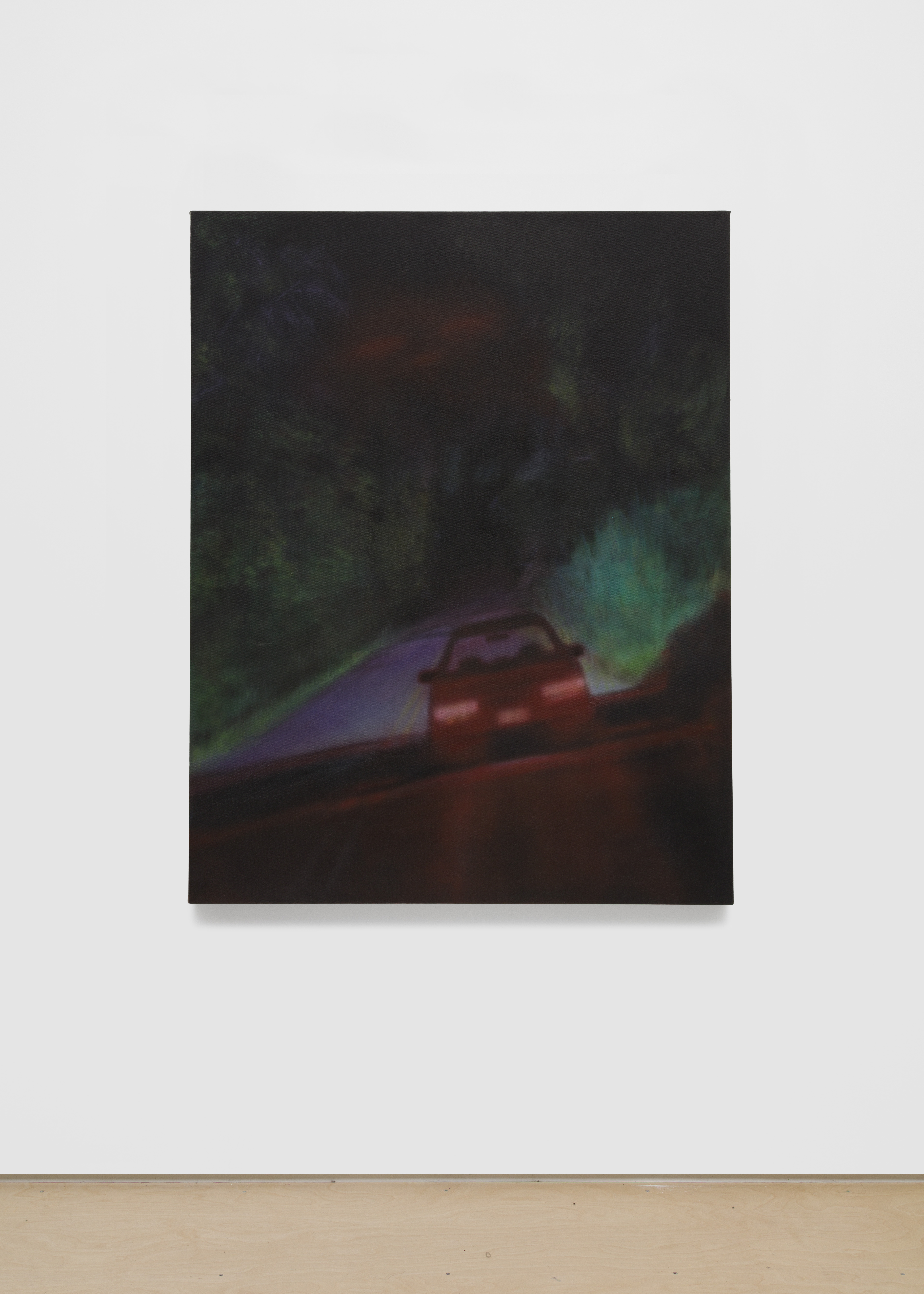
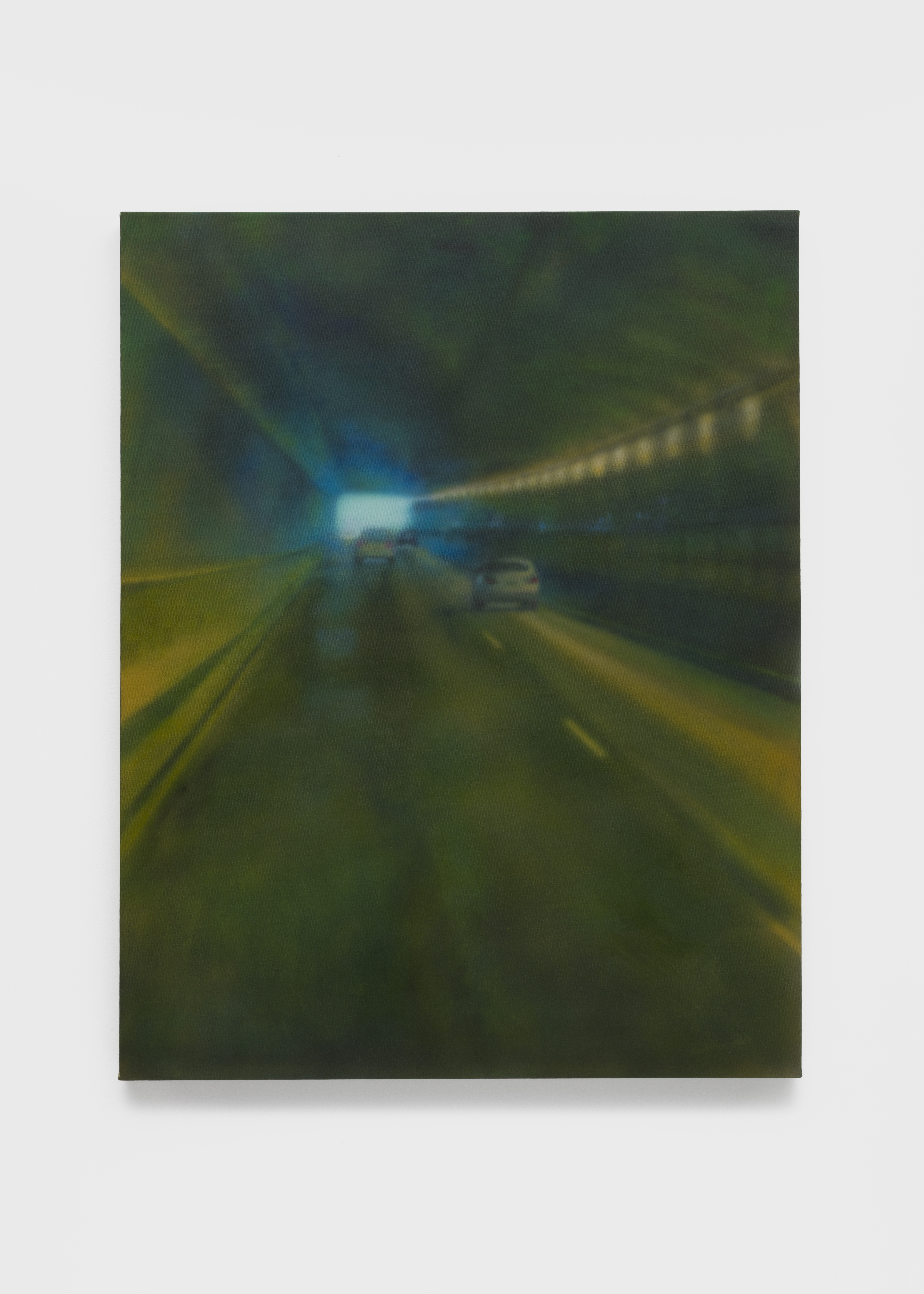
It feels gratuitous writing about Leon Xu’s paintings when you have an exhibition text written by Hua Hsu, the 2023 Pulitzer winner for his memoir Stay True: “My obsession with Leon’s work grows out of how it makes me feel, and I can only describe that in terms of what those feelings remind me of…”
It is a peculiar task to describe Xu’s work. Perhaps it is easier to start with what it is not doing. These are not paintings of crowds or figures, but of experiences that feel too blurry to be near, too close to be real—too real to be vicarious. They don’t appear as much as they linger, declare as much as they hum. Dilated but not out of focus, they are recordings of tangible observations recalled in soft concentration, sprayed with contentment and glossed over with loss. These are pictures ofnothing, in particular.
A lot of Xu’s earlier paintings framed scenes from and of his 1989 Toyota Celica, as if drifting in the future memory of characters from Initial D. Empty Orchestra expands the horizon to more meditative outlooks, where the protagonistic gaze has escaped the vessel of escape into the world (all works 2023).
Xu deploys a combination of airbrush with acrylic that solidifies a liquid sense of (in)articulation, withholding clarity in haze. The combination results in pictures that concede the hyper-realism once associated with one or the other for an effect of ephemeral transience in and between the two. The more you probe these pictures the less they give. Walking into the daisy meadow of I keep looking for something, even though I know that it’s not there, I see the tiny stems emerging out of the blurred field, hiding in and out of the daisy petals, running under my skin, like veins. A tender texture is on the verge. Taking a step back, an aerial view of the field emerges and leaves me hovering in suspension. I find myself in a dance between tangibility and obscurity, conception and perception, as if I am looking into his visions as he shows mine.
In Going nowhere in particular, a red vehicle stages precipice, with the macabre curtain of opaque shadow tailing behind and the twenty-five feet of illumination before its front wheel. As the car heads toward the dark orifice enclosed by trees and bushes, its shadow pervades in red—reflective as the vehicle’s extended self, sustained in its path once traveled. Overhead, a mystical red haze hovers, forming a face that mimics the rear of the car. Motions are sent in reverberation. Time feels stretched. Path uncertain. The interval between the depicted speed and the perceiving pace creates the chase.
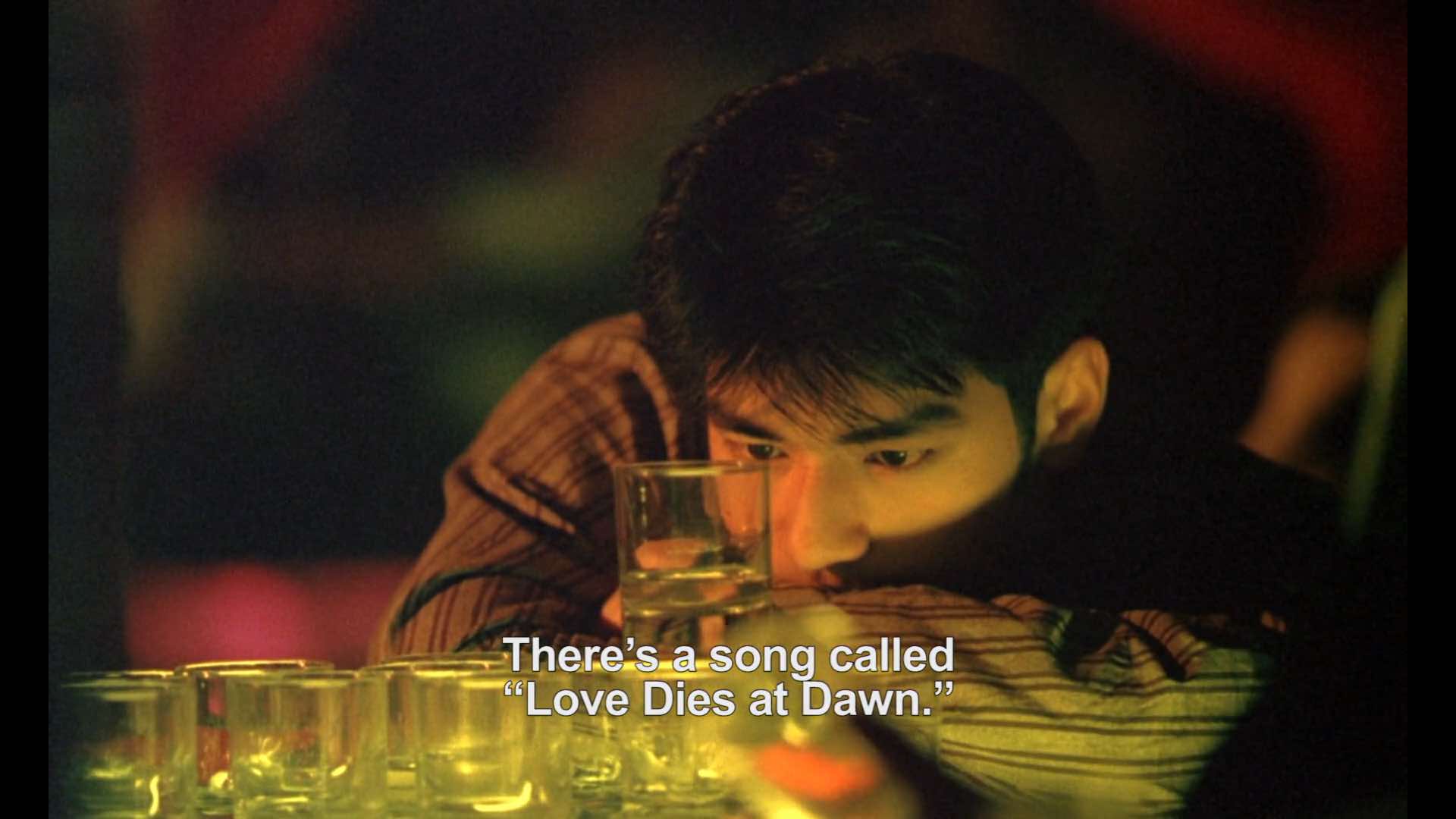
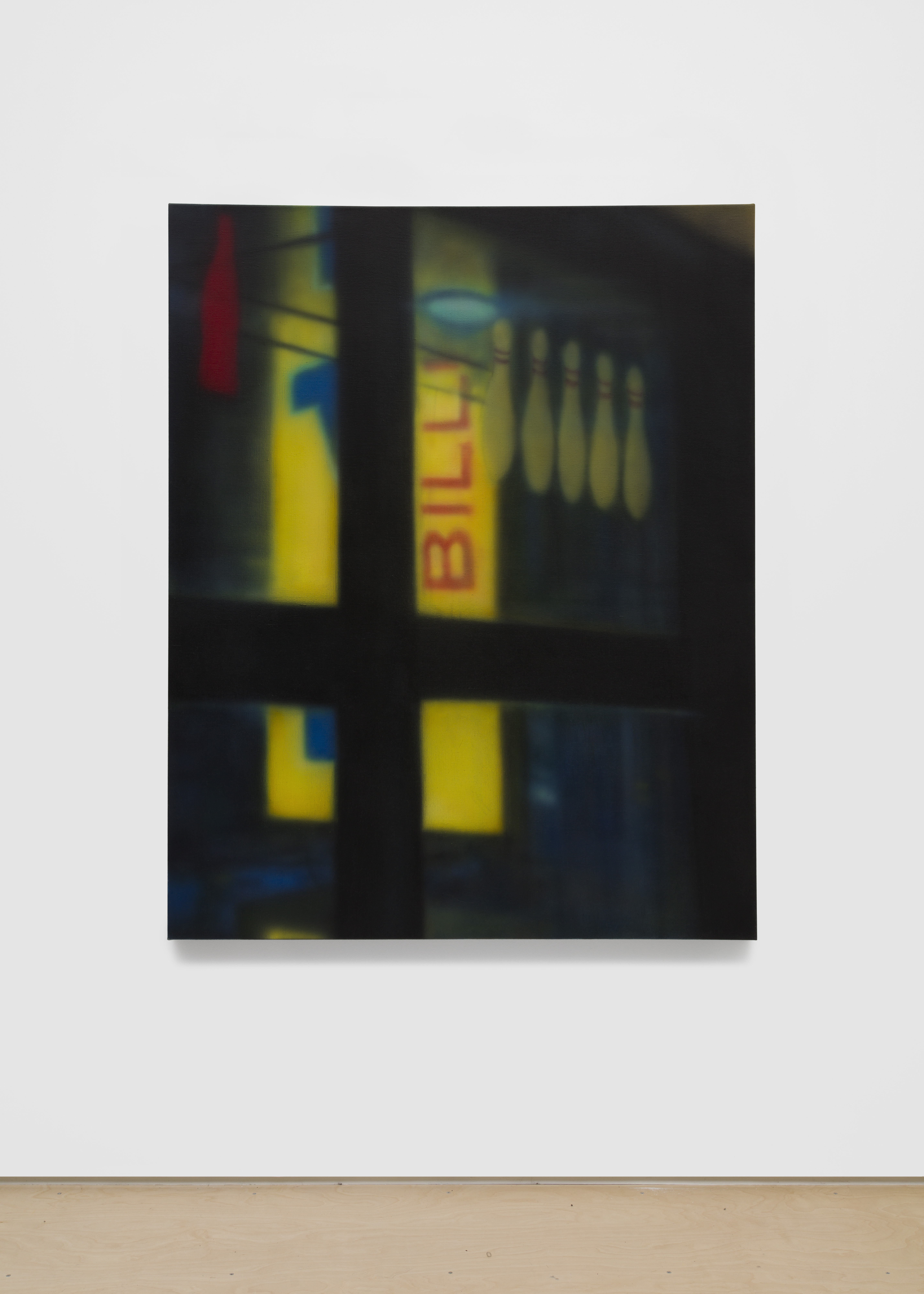

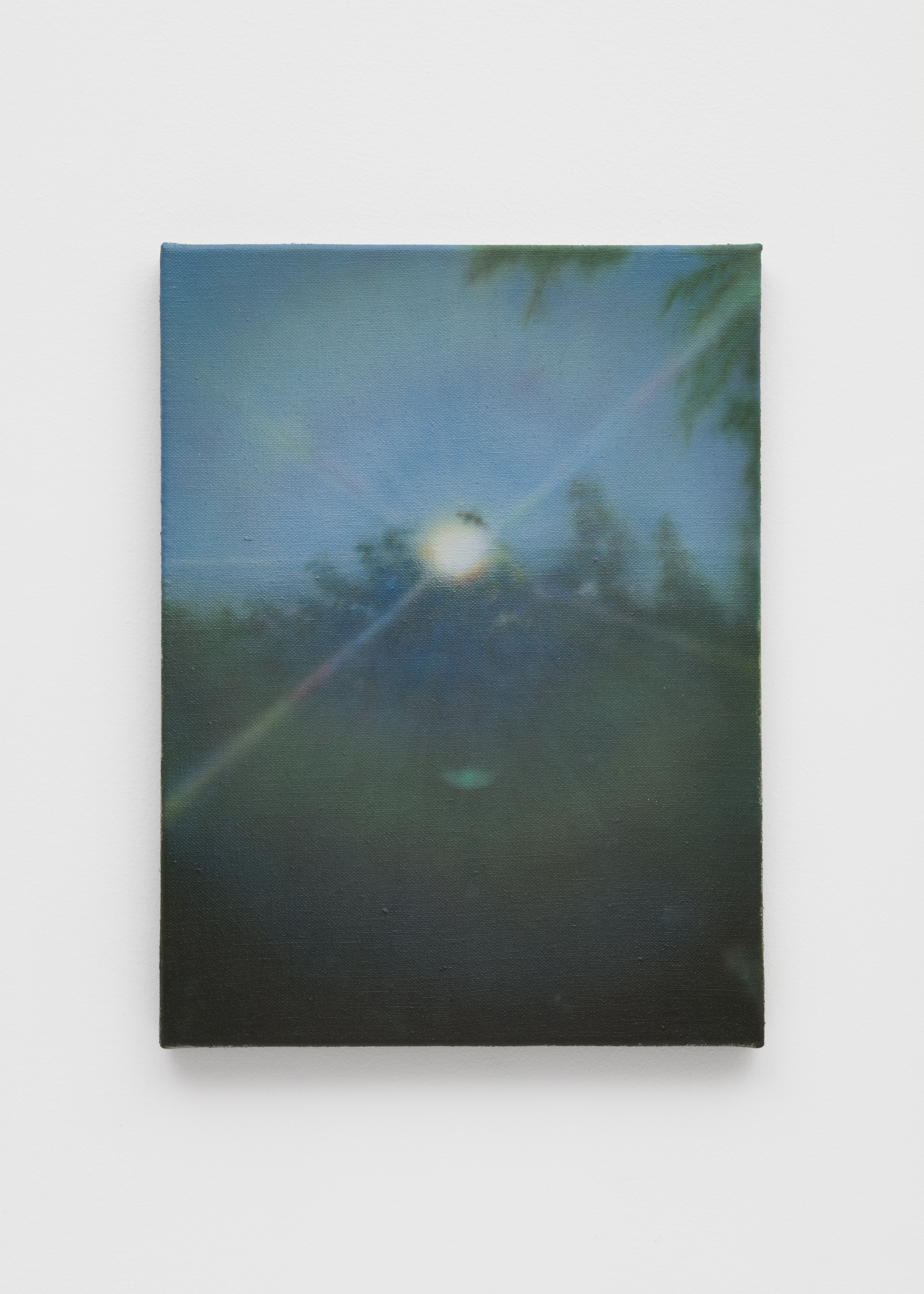
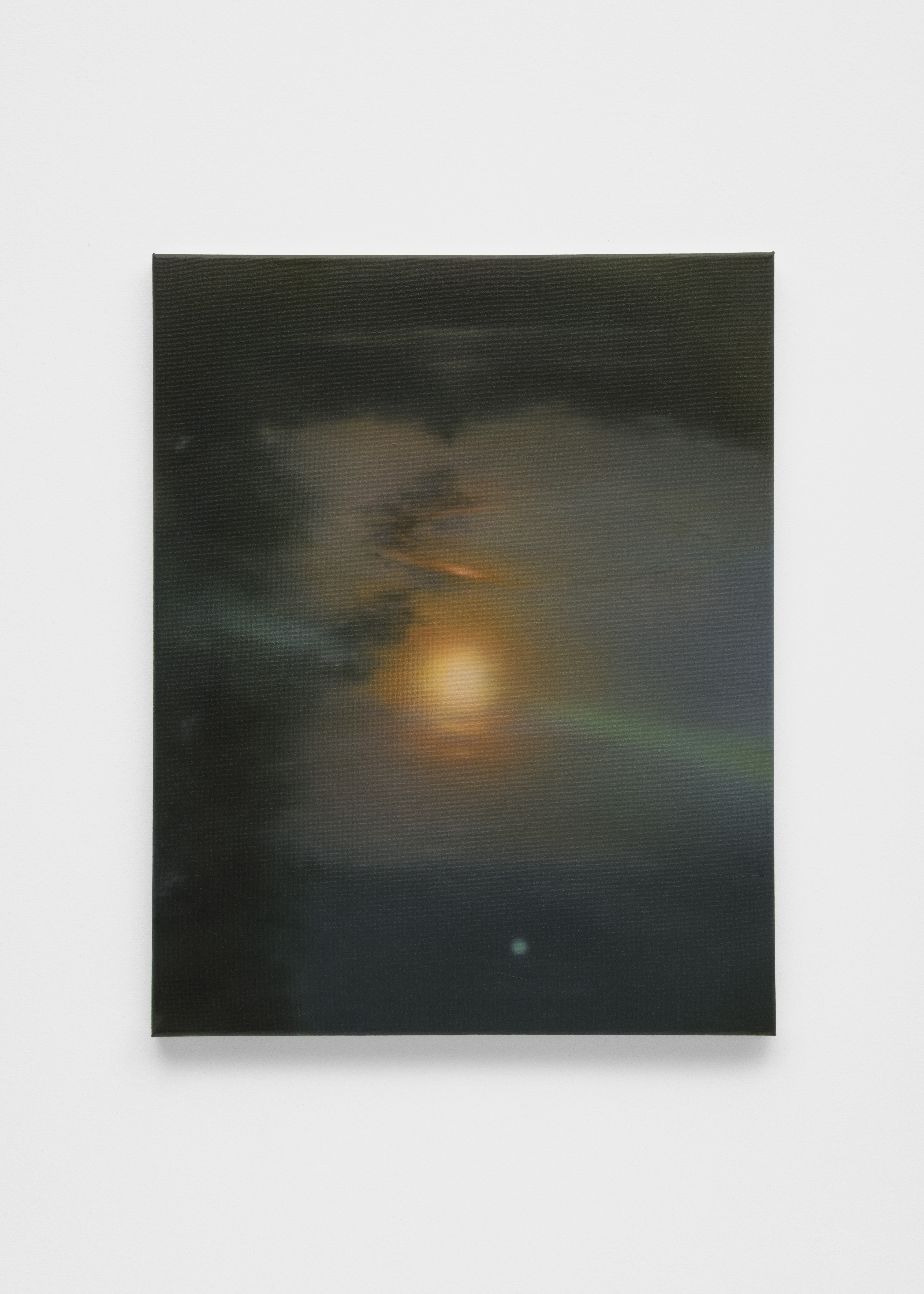
Next to one another, these two road paintings delineate a void that awaits elaboration from the others in attendance and particularly their language of the aperture. Puncturing the center of Heaven knows what, the midday sun lurks through the tips of trees. The ring of its subdued iridescence swells, caressing the surface like a dilating iris or a soap bubble. Just like honey attends to dusk, its illumination dissolving into a pool of Impressionist hues. A savory solitude is caramelized in a serendipitous ripple.
Imperceptible to the naked eye, the halo effect originated in photography, when the camera lens confronts the radiance of the sun head on, refracting rings of colors. Here, Xu uses this photographic effect to generate painterly narratives. In When you ask to see all of me, I’ll show you, light disperses in all directions and permeates the surface in specular puddles, leaking through the crevices of trees, reflecting from the vague body of water in the distance, staring into the eye of whoever faces it. Diffused in delectable subtlety, the aura from the aperture is not only reminiscent of the romantic or the sublime, but feels poignantly contemporary, virtual, and even spiritual. Like a long shutter that forgets to blink, swallowing so much change but remaining in its place. In this hallucinating ascent to remembrance, the blind spot looks like the compass.
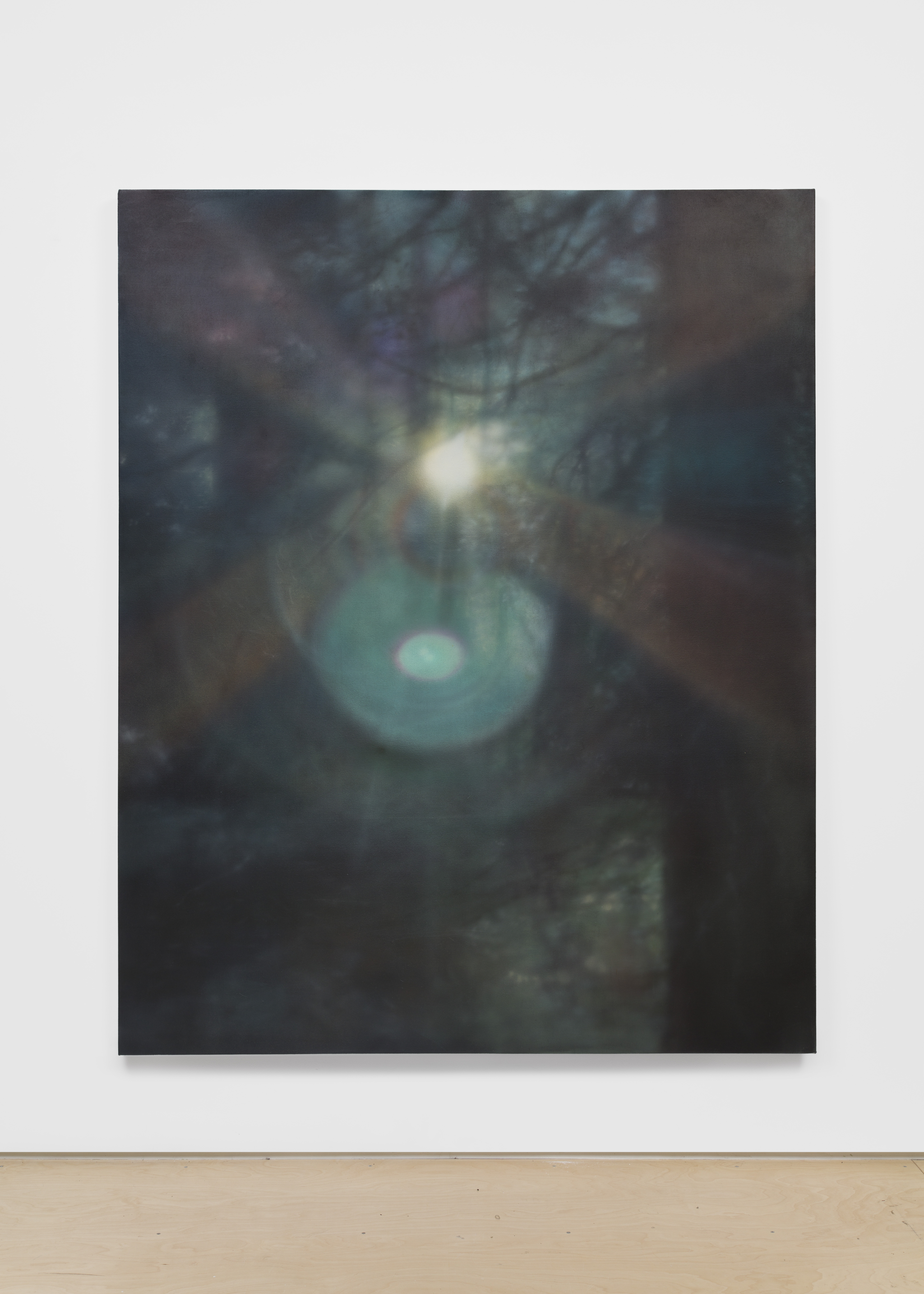
When you ask to see all of me, I'll show you
Archival Inkjet Print
62 × 78 inches
2023
Archival Inkjet Print
62 × 78 inches
2023
In a time when everything lends itself to abundant distraction, where our eyes make a habit of scrutiny and neglect, Xu’s paintings surface the rare sobriety and empathetic simplicity that make us question our proximity and alienation. The paintings are not there as the witness for what-had-been but stand in the liminal space between representation and abstraction, after “feeling” something but before “meaning” anything. They are pictures of bliss where the tiniest feelings are given a tangible texture, where the most tender fleeting memories are sustained in arrivance. At heart of the sentimentality at work here is an empathic fidelity to process and inconclusiveness—insolent to possible condemnation and doubt, patient and forgiving with its given time and change. These works seek to be in conversation but are not waiting for an answer. They are here with their surroundings, be it empty or crowded with people—and remain true to its past, present, and future, amidst revelation, exhaustion, and dissolution. True, I might grow out of these pictures, but they show me the joy of growth and uncertainty, and so I will take my time.
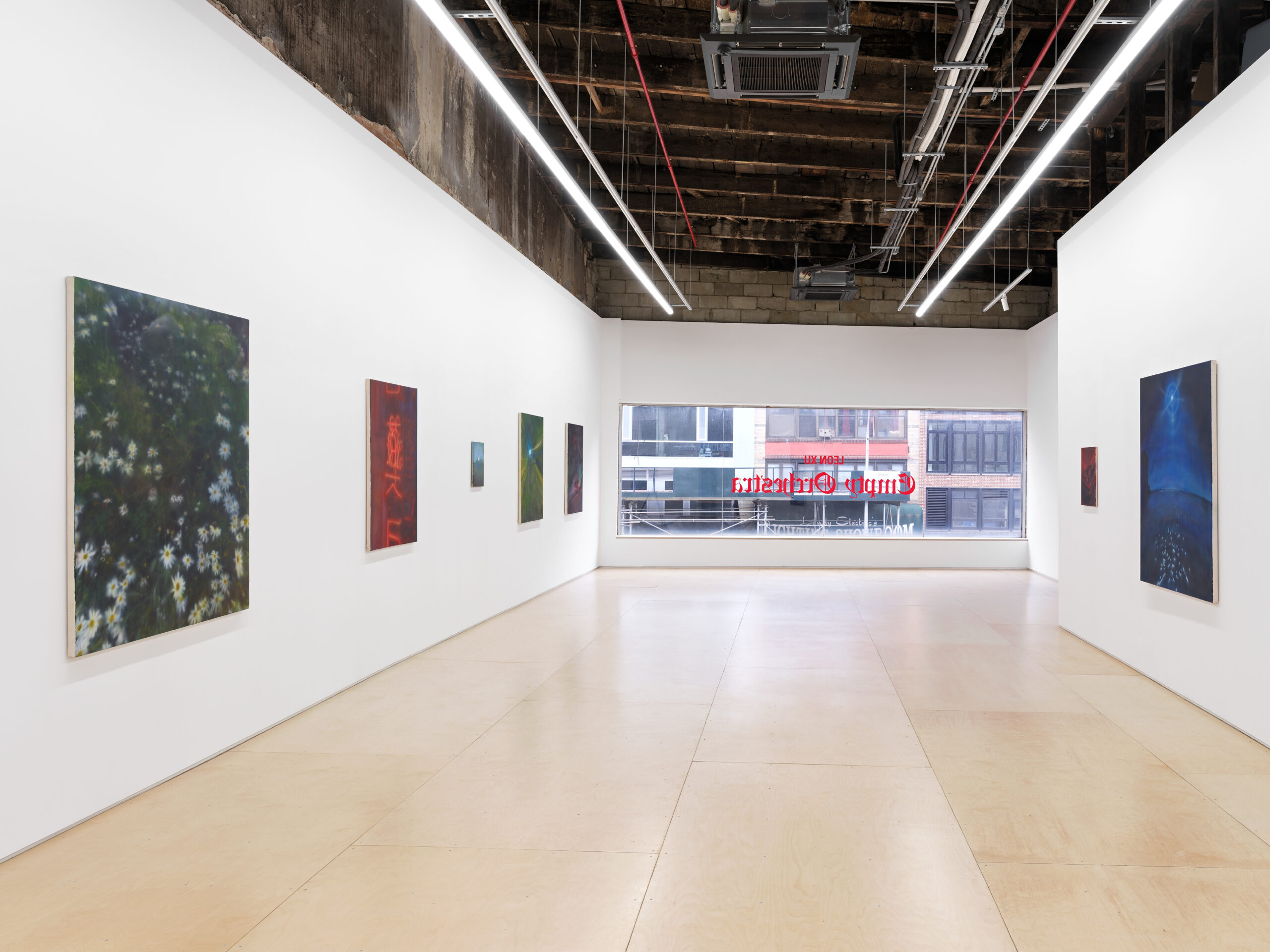
Installation view: Leon Xu: Empty Orchestra, Helena Anrather, New York, 2023. Courtesy the Artist and Helena Anrather, New York. Photo: Sebastian Bach.